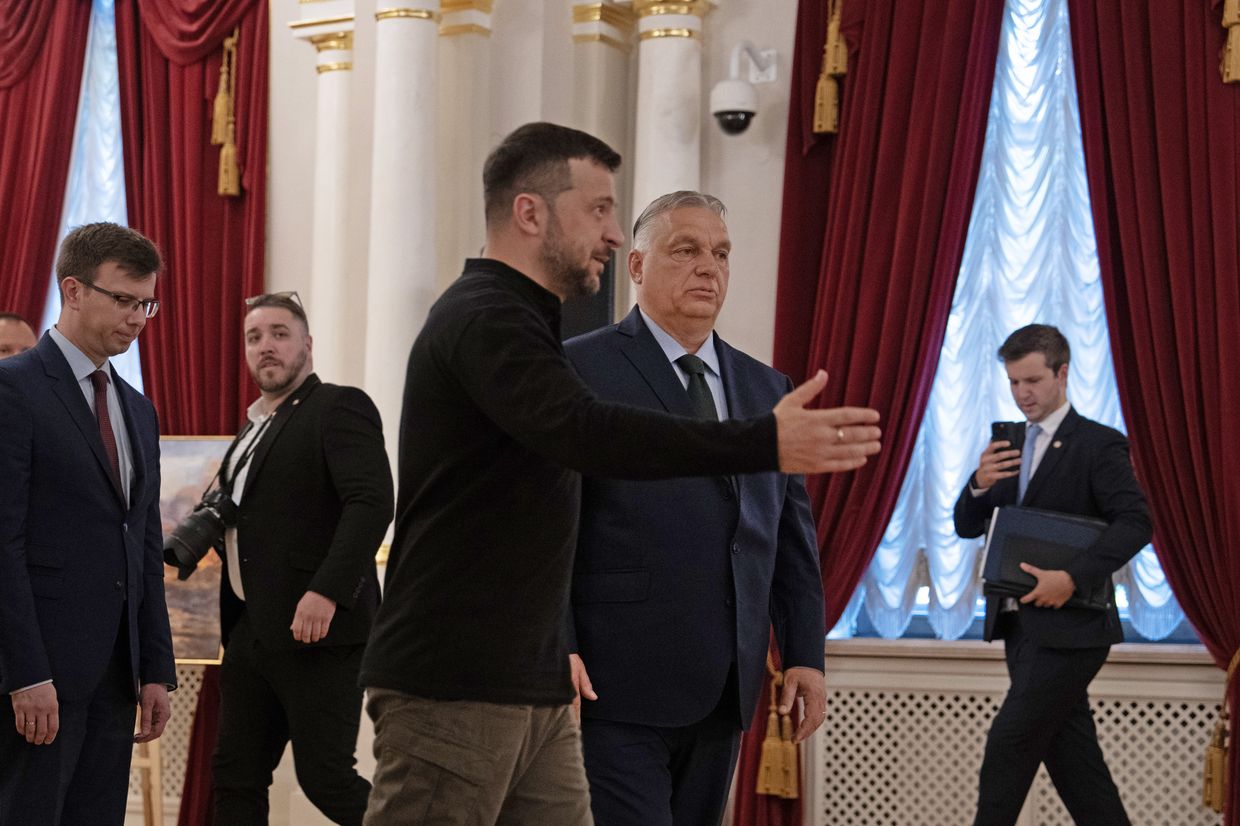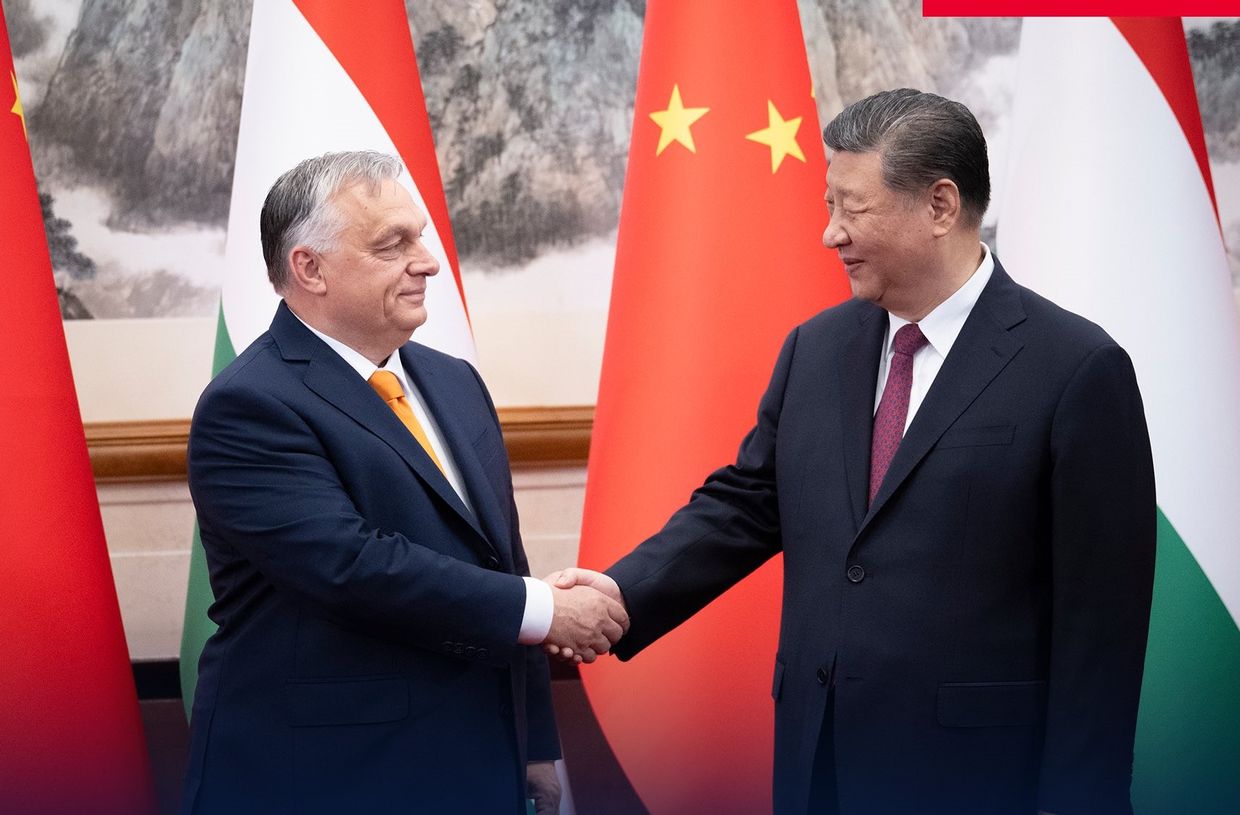Editor's note: The article was updated with details of Orban and Xi's meeting, and the headline was changed.
Hungarian Prime Minister Viktor Orban arrived in China on July 8, days after his visits to Kyiv and Moscow.
Orban, whose country took over the rotating presidency of the Council of the EU earlier in the month, called the visit to Beijing a third step in his "peace mission."
"China is a key power in creating the conditions for peace in the Russia-Ukraine War. This is why I came to meet with President Xi (Jinping) in Beijing, just two months after his official visit to Budapest," Orban said on X.
China has positioned itself as neutral in the ongoing war but has deepened economic ties with Russia and become Moscow's leading source of dual-use goods.
Beijing has also pitched a peace plan together with Brazil as an alternative to Ukraine's peace efforts, hoping to secure international backing for its proposal.
Orban met Xi later during the day, sharing a joint photo on social media. The two leaders exchanged "in-depth views" on the Russia-Ukraine war, the Chinese state news agency Xinhua reported.
Hungary's head of government briefed Xi on the former's visits to Kyiv and Moscow, while the Chinese president appreciated Orban's "peace efforts" and stressed the need for an early ceasefire, the Chinese media wrote.
"China has been actively promoting peace talks in its own way and encouraging and supporting all efforts conducive to a peaceful settlement of the crisis," Xi said, adding that China's and Hungary's direction of efforts are the same.
Both Kyiv and Moscow rejected an early ceasefire, saying it would only benefit the opposing side as a chance to regroup its forces.
The Hungarian prime minister's visit to Moscow and talks with Russian President Vladimir Putin on July 5 sparked anger across the EU. European officials stressed that the presidency has no mandate to conduct any "peace missions" on the EU's behalf and that Orban's undertaking is a bilateral effort on Hungary's part.
Budapest has maintained close relations with Moscow throughout the full-scale war, obstructed sanctions against Russia, and criticized military aid to Kyiv, alleging that it merely "prolongs" and "escalates" the war.
Upon talking with Putin and Ukrainian President Volodymyr Zelensky, Orban said that the stances of the two countries on peace prospects are "very far apart."














